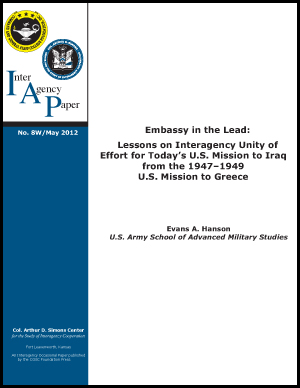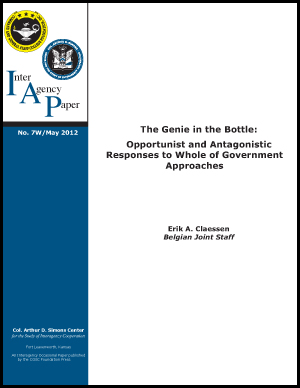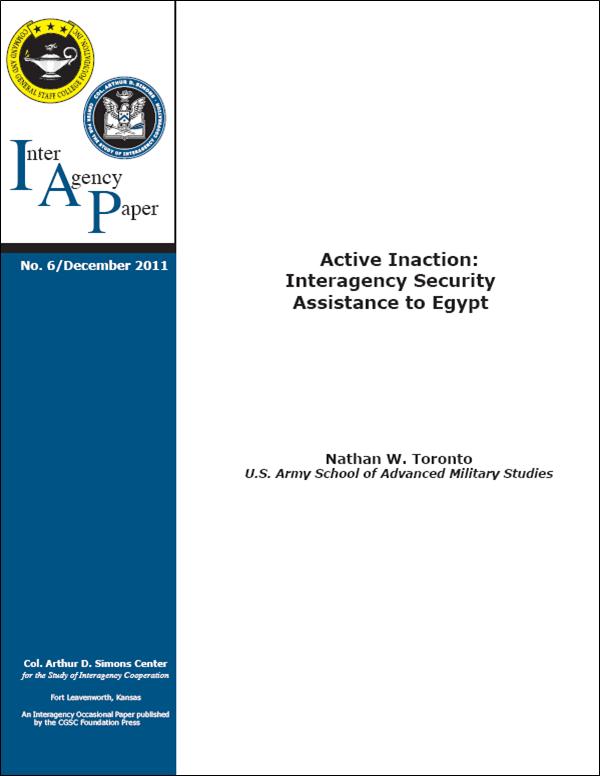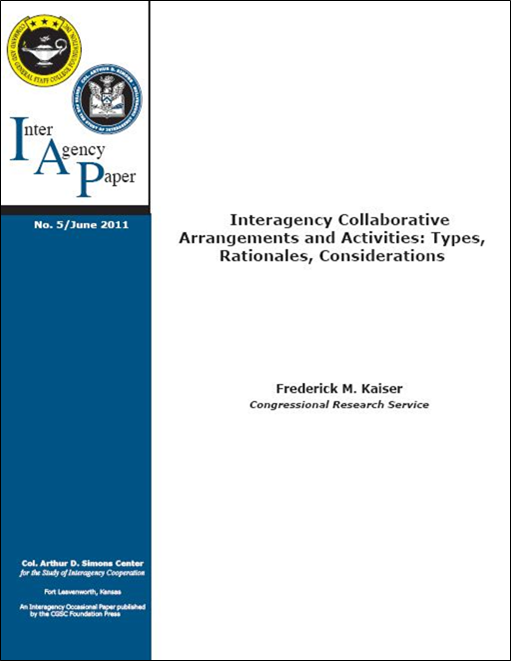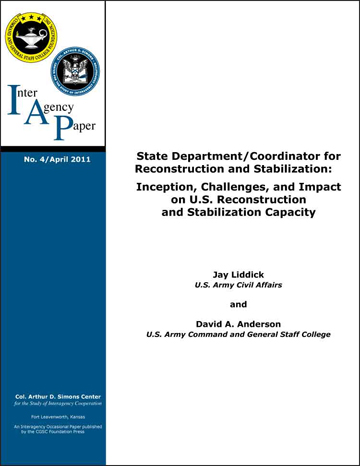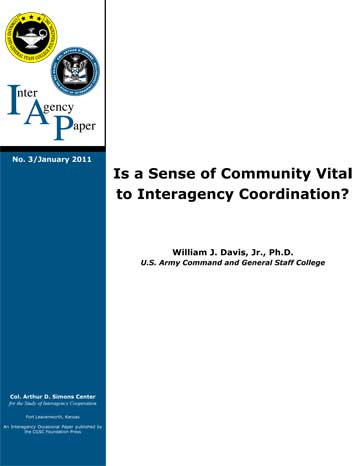Publications Category: Interagency Papers
On December 15, 2011, the U.S. mission in Iraq became State Department-led, and all U.S. military activities became the responsibility of the U.S. Embassy’s Office of Security Cooperation–Iraq (OSC-I). There are few, if any, well-known examples of such a transition in U.S. history that might inform civilian and military leaders in Baghdad.
... Read MoreWhen intervening forces create a safe and secure environment to implement a whole of government approach, they simultaneously create opportunities for hitherto unnoticed and powerless opponents to do the same—and sometimes more successfully.
... Read MoreThis content is exclusive to Simons Center Fellows. Don’t have an account? Become a Simons Center Fellow to access all available publications. Visit the “My Account” page to login or reset your password.
... Read Moreby Frederick M. Kaiser
Interagency coordinative arrangements and activities—called for in public laws, executive orders, and administrative directives—appear to be growing in number, prominence, and proposals throughout virtually all individual policy areas and across-the-board. Underlying this growth are several developments…
... Read Moreby Major Jay Liddick and Dr. David A. Anderson
Like the post-9/11 Bush administration, the Obama administration must confront numerous security threats to U.S. national interests at home and abroad. The Obama administration, however, has the added challenge of a severe domestic economic recession. Amidst the economic quandary, President Obama and Congress must prudently go about the arduous task of determining how to best utilize U.S. resources to mitigate national security threats in a domestic environment demanding fiscal discipline.
... Read Moreby William J. Davis, Jr., Ph.D.
What causes a large group to operate in an efficient, effective, innovative manner? Is it the way it is organized, its executive structure, its mechanisms for gathering and disseminating information, its internal communications, its analytic capacity, its contributions from staff, its morale, or its sense of community?
... Read Moreby Nicholas H. Riegg
The military’s relatively new “full spectrum” approach to warfare emphasizes that military and other U.S. interagency partners must address the full gamut of needs of nations defeated in war or ravaged by natural or manmade catastrophes.
... Read Moreby Karisha Kuypers, U.S. Department of Agriculture, and
Professor David A. Anderson, U.S. Army Command and General Staff College
To assist the nation in rebuilding its agricultural economy, the U.S. Department of Agriculture (USDA) has provided advisors who have worked on Provincial Reconstruction Teams (PRTs). Based largely on their end-of-tour reports, this paper examines and evaluates the challenges, successes, and modes of interaction of USDA advisors with their PRT and Afghan colleagues and concludes with recommendations for the future.
... Read More"*" indicates required fields
